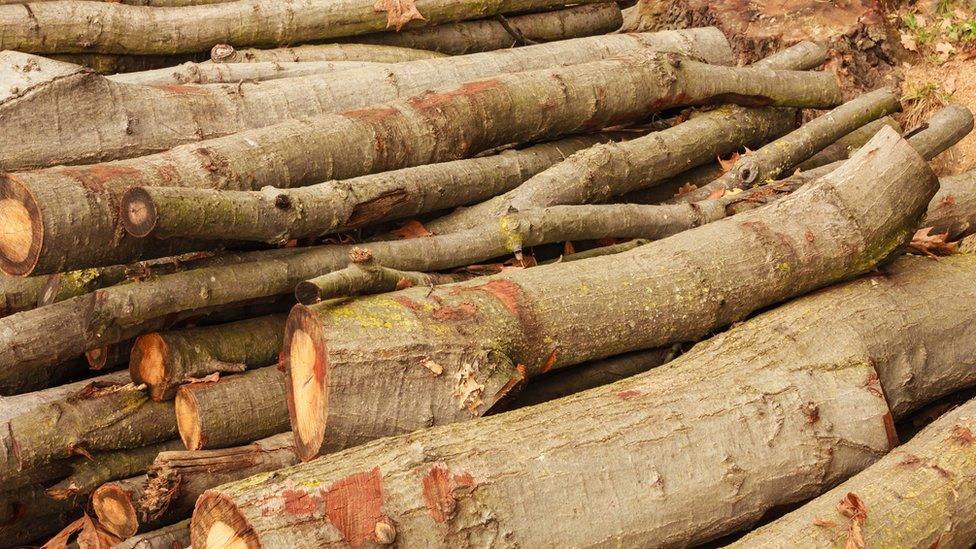Natural Resources Wales's 'failings' over timber sales
- Published
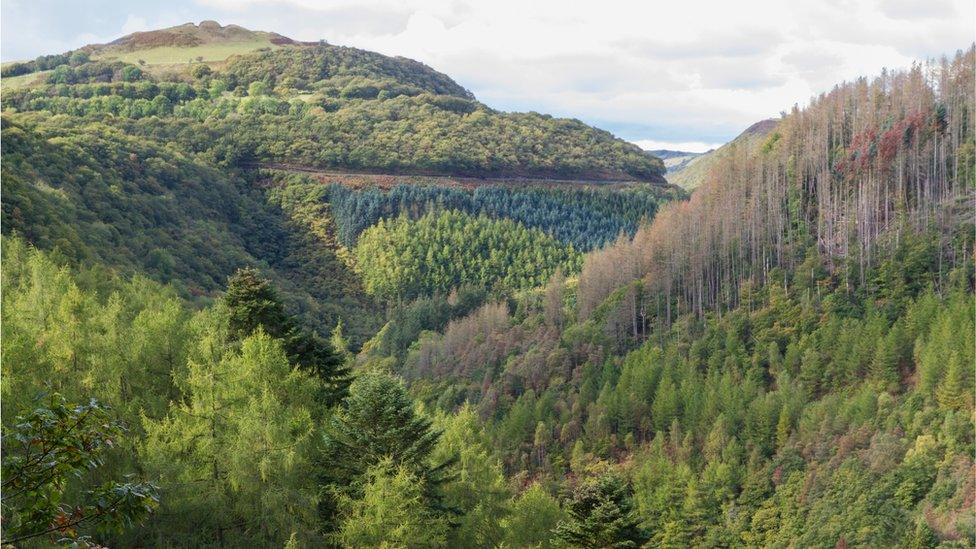
Natural Resources Wales has managed publicly-owned forestry since 2013 - 37% of all Welsh woodland
An independent review into how Natural Resources Wales handled timber contracts has found "serious failings".
Auditors Grant Thornton found problems were so bad they "heightened exposure to the risk of fraud".
The agency - responsible for publicly-owned woodland across Wales - repeatedly sold its timber without going to the open market.
NRW said it was taking the findings "very seriously" and had an action plan to ensure improvements were made.
The Welsh Government said they were satisfied NRW was "taking a strong lead on putting things right in their organisation".
The way timber was sold had already been heavily criticised by auditors and the assembly's public accounts committee.
NRW called in experts, Grant Thornton, to review its processes after the Wales Audit Office put a black mark against its 2017/2018 accounts for the third year running.
Grant Thornton did not find specific fraud but identified "certain potential irregularities", which NRW has confirmed will be fully investigated.
The report authors also said they were unable to complete their review of all the contracts chosen for scrutiny because of delays in receiving responses from NRW to their queries. They said NRW have agreed to undertake wider testing.
The firm also found that "while progress has been made [by NRW] in addressing issues raised in previous internal and external reviews, not all matters have been addressed".
Poor contract monitoring including a lack of basic processes, and a number of contracts going over volume without challenge or changes to the contracts.
"A high error rate" in the contracts reviewed.
"Insufficient" financial oversight, with a need to improve its financial reporting.
No effective monitoring of income and profit.
"Insufficient urgency and a lack of accountability" in dealing with serious issues, while governance in the organisation "was not robust".
An overall "lack of prioritisation in addressing areas of concern".
A number of concerns which were raised internally by staff were not acted upon.
NRW chief executive Clare Pillman, who joined in February 2018, told BBC Wales what had happened with the timber contracts was "indefensible".
She said: "We know that we have to get this right and the board of NRW is providing strong direction and support to this project.
"I told our annual meeting with the timber industry recently that I feel a new era is dawning in Wales."
Plaid Cymru leader Adam Price AM called for the Welsh Government to step in and "conduct any further investigation so we can finally have a comprehensive picture as a basis for actually putting an action plan into place so we can move forward".
Welsh Conservatives environment spokesman Andrew RT Davies said it was time for the Welsh Government to take responsibility for NRW's "disastrous merger" which is "failing its duty to the Welsh public".
A Welsh Government spokesman said NRW was already making the necessary changes to its commercial timber operations and putting systems in place to "make sure this does not happen again".
Environment Minister Lesley Griffiths will be meeting the interim chair and chief executive this week to discuss the Grant Thornton review, he added.

What is the background?
NRW was created in 2013 out of a merger of environmental bodies, including the Forestry Commission in Wales.
But it has been embroiled in a scandal over sales of timber to three firms in recent years without going to the open market.
An audit report last year found no evidence NRW was selling timber to three companies at market value. Their contracts were not tendered to other potential buyers and the Auditor General for Wales said he considered some of the deals "were not entered into lawfully".
The then-NRW chairwoman resigned and last month leading timber companies said they had no confidence in the ability of NRW to deliver a commercially viable service.
- Published23 January 2019
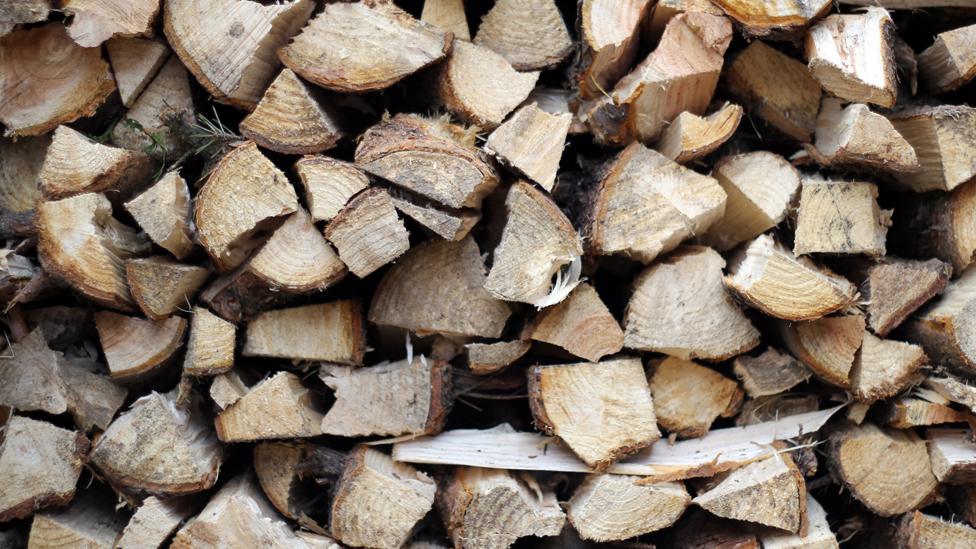
- Published16 July 2018
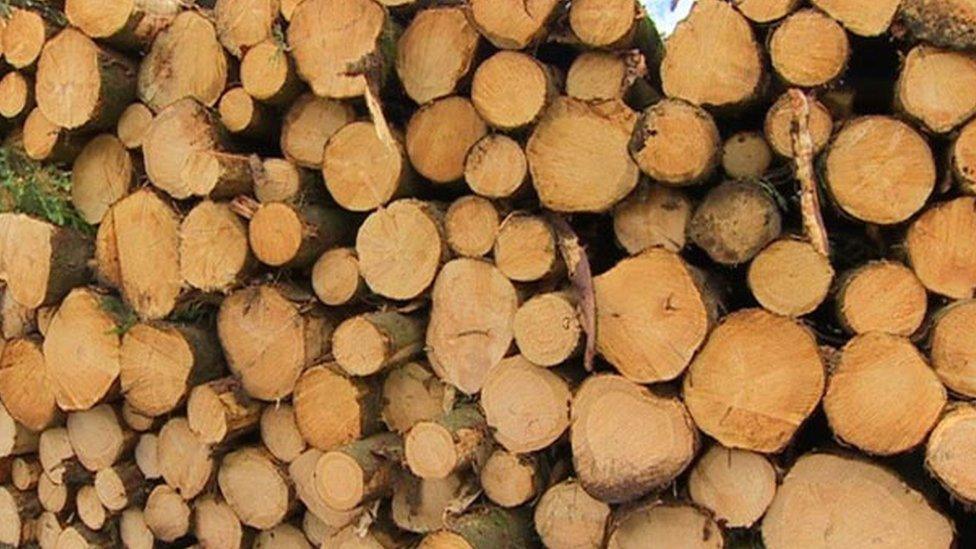
- Published24 September 2018
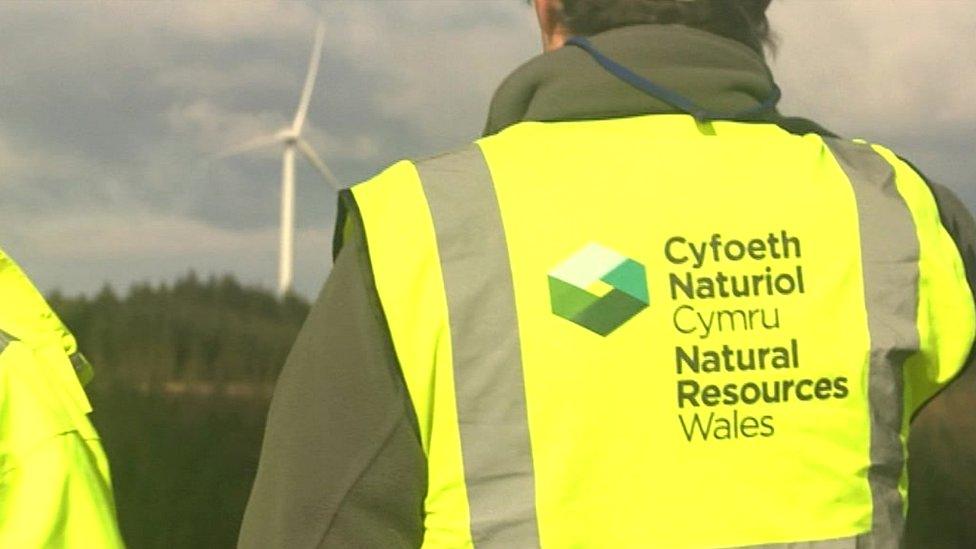
- Published7 August 2018
